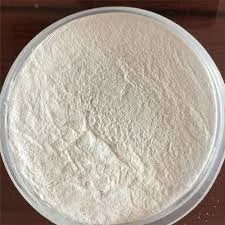
Nov . 21, 2024 22:03 Back to list
mortar bonding agent
The Importance of Mortar Bonding Agents in Construction
In the realm of construction and masonry, the quality of the materials used is paramount to ensure durability, strength, and aesthetics. One crucial component that often goes overlooked is the mortar bonding agent. These agents play a significant role in enhancing the bond between the mortar and the substrate, ultimately contributing to the longevity and stability of structures.
Understanding Mortar Bonding Agents
Mortar bonding agents are specially formulated products designed to promote adhesion between mortar and various surfaces. These agents can be liquid or powder-based, and they are mixed with water or mortar to create a strong bond. Their primary purpose is to improve the mechanical properties of the mortar and enhance its ability to adhere to substrates such as concrete, brick, and stone.
Types of Mortar Bonding Agents
There are several types of mortar bonding agents available on the market, each tailored for specific applications
1. Polymer-Based Bonding Agents These are synthetic polymers that provide excellent adhesion and flexibility. They are often used in thin-set mortars and can improve the water resistance and flexibility of the mortar.
2. Cementitious Bonding Agents These agents are typically composed of powdered cement and can be mixed directly with mortar. They enhance the bonding capacity of the mortar to the substrate, making them ideal for repair and restoration projects.
3. Organic Bonding Agents These are typically made from natural materials and provide decent adhesion but may not offer the same level of performance as synthetic options. They are generally used in less demanding applications.
4. Liquid Bonding Agents Commonly in a liquid form, these agents are applied directly to the substrate before the mortar application. They create a strong interface that enhances the bond strength.
Benefits of Using Mortar Bonding Agents
The application of mortar bonding agents offers several advantages that can significantly impact the quality of construction projects
1. Enhanced Adhesion The primary benefit of using a bonding agent is its ability to increase the bond strength between the mortar and substrate. This results in a more durable and stable structure, capable of withstanding various environmental stresses.
mortar bonding agent

2. Improved Flexibility Many modern bonding agents provide flexibility to the mortar. This is especially important in areas prone to temperature fluctuations and seismic activities, where structures may experience stress and movement.
4. Durability By improving the overall performance of the mortar, bonding agents help extend the lifespan of the masonry work. This means fewer repairs and maintenance costs in the long run.
5. Versatility Mortar bonding agents can be used in a variety of applications, including bricklaying, tiling, stucco, and masonry repair projects, making them invaluable in the construction industry.
Application Tips for Mortar Bonding Agents
To maximize the benefits of using a mortar bonding agent, it is essential to follow proper application techniques
1. Surface Preparation Ensure that the substrate is clean, free of dust, grease, and other contaminants. Proper surface preparation is crucial for achieving optimal adhesion.
2. Mixing Follow the manufacturer’s instructions when mixing the bonding agent with mortar. The right proportions will ensure the best performance of the bonding agent.
3. Even Application Apply the bonding agent evenly to the substrate, ensuring complete coverage. This will prevent weak spots in the bond.
4. Curing Allow the bonded mortared surface to cure properly. Curing is vital for developing the full strength of the bond.
Conclusion
Mortar bonding agents are an integral part of the construction process, providing essential benefits that enhance the strength and durability of masonry work. By understanding the various types of bonding agents and their applications, builders and masons can make informed choices that ultimately lead to safer and more reliable structures. In an industry where every detail matters, the role of mortar bonding agents should not be underestimated. Investing in quality bonding agents is a step toward building structures that can withstand the test of time.
-
Versatile Hpmc Uses in Different Industries
NewsJun.19,2025
-
Redispersible Powder's Role in Enhancing Durability of Construction Products
NewsJun.19,2025
-
Hydroxyethyl Cellulose Applications Driving Green Industrial Processes
NewsJun.19,2025
-
Exploring Different Redispersible Polymer Powder
NewsJun.19,2025
-
Choosing the Right Mortar Bonding Agent
NewsJun.19,2025
-
Applications and Significance of China Hpmc in Modern Industries
NewsJun.19,2025







